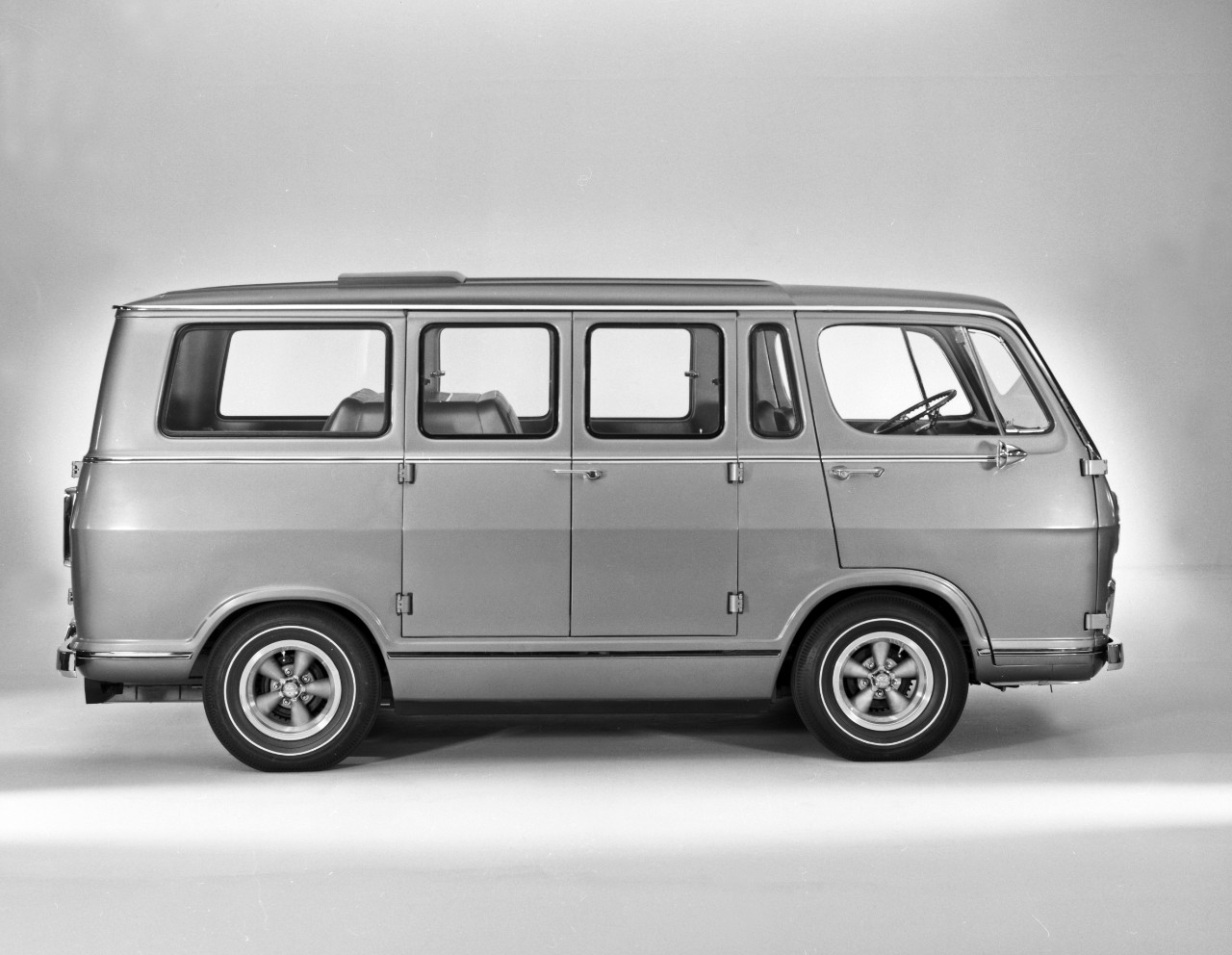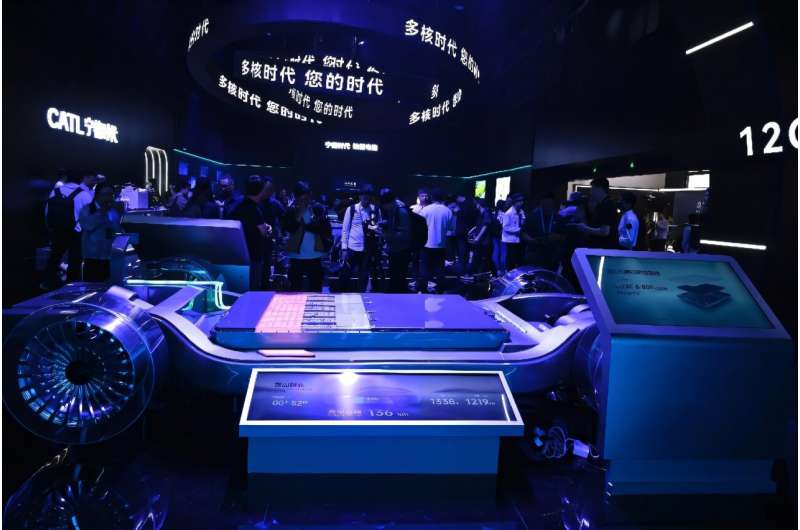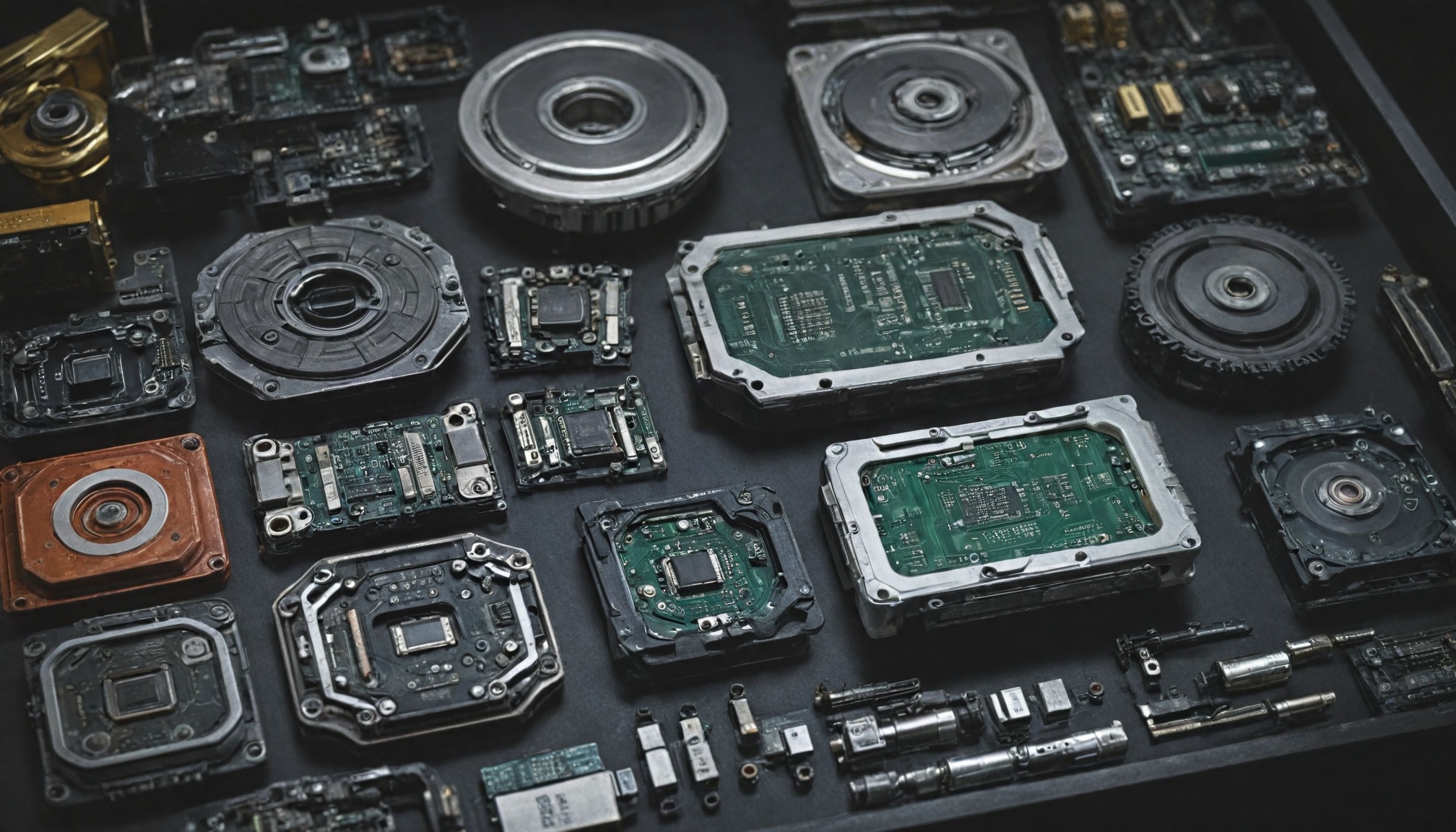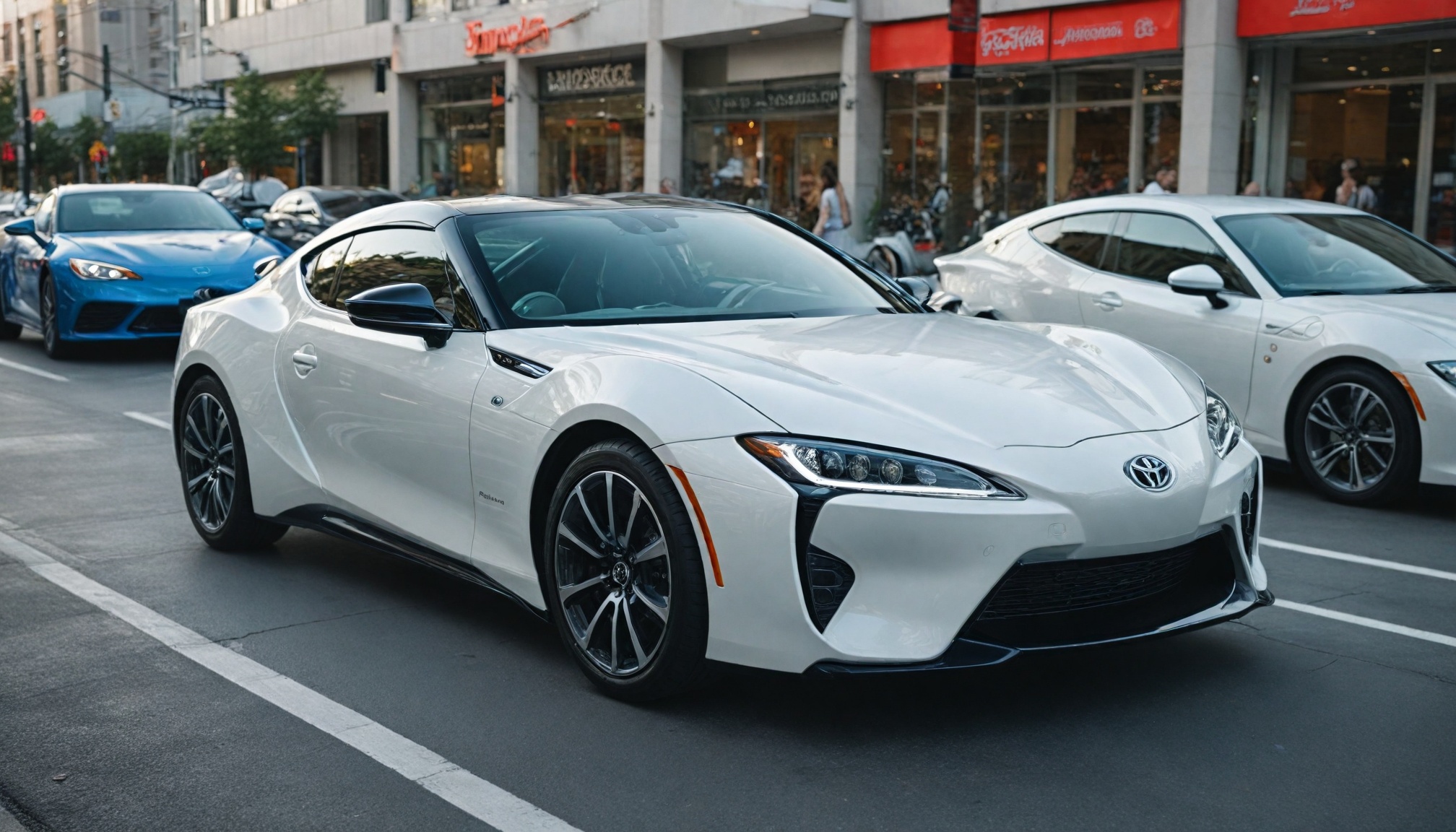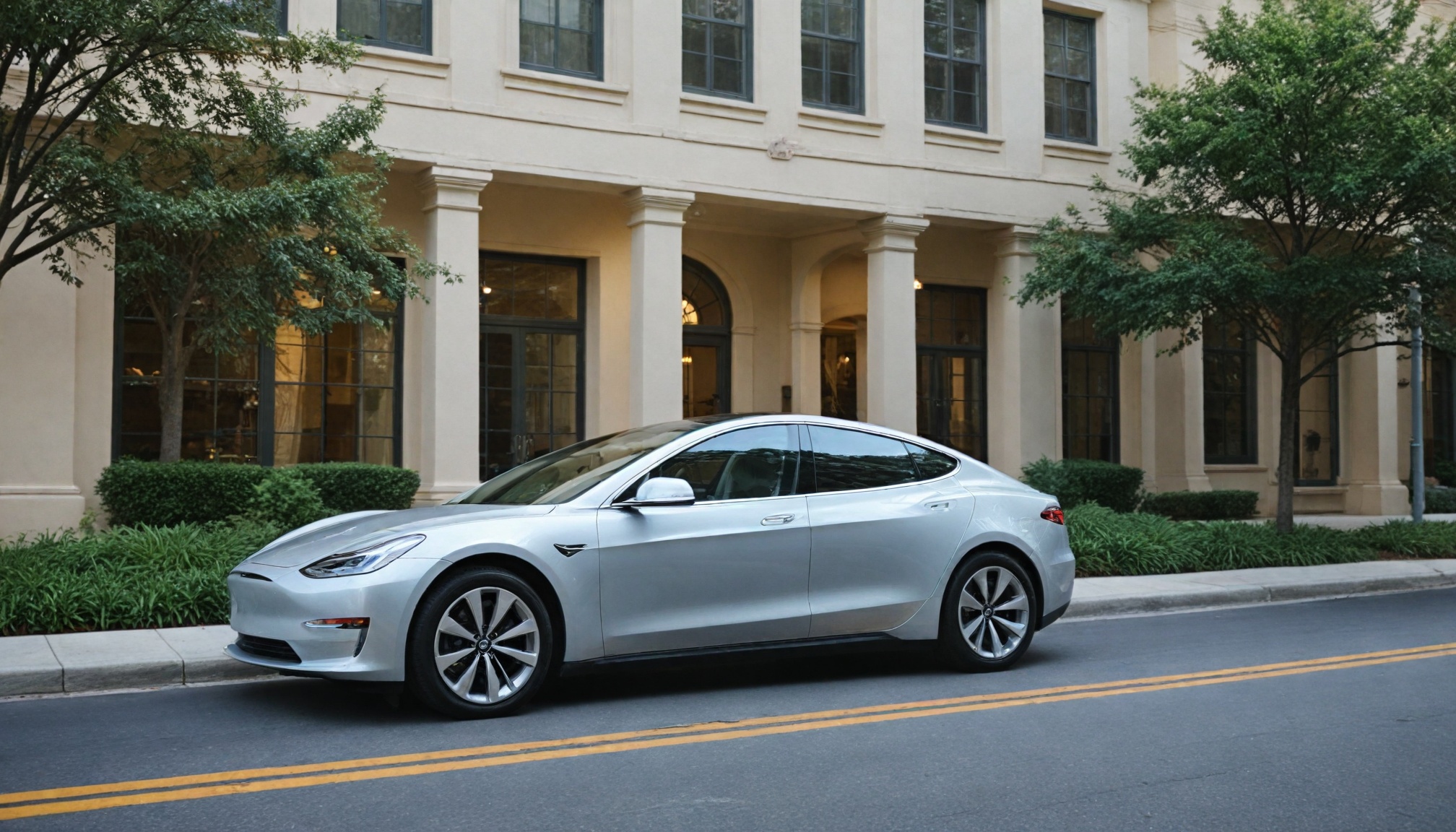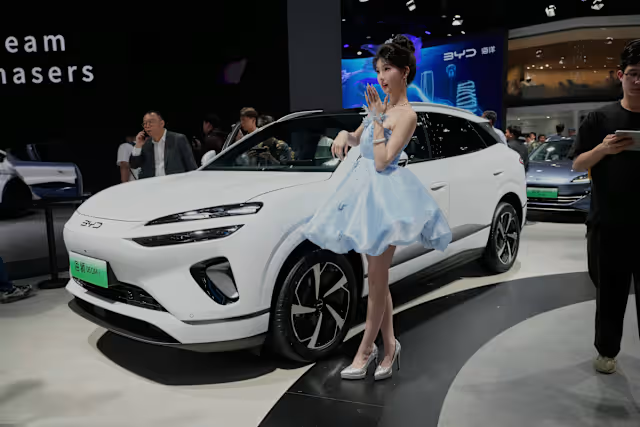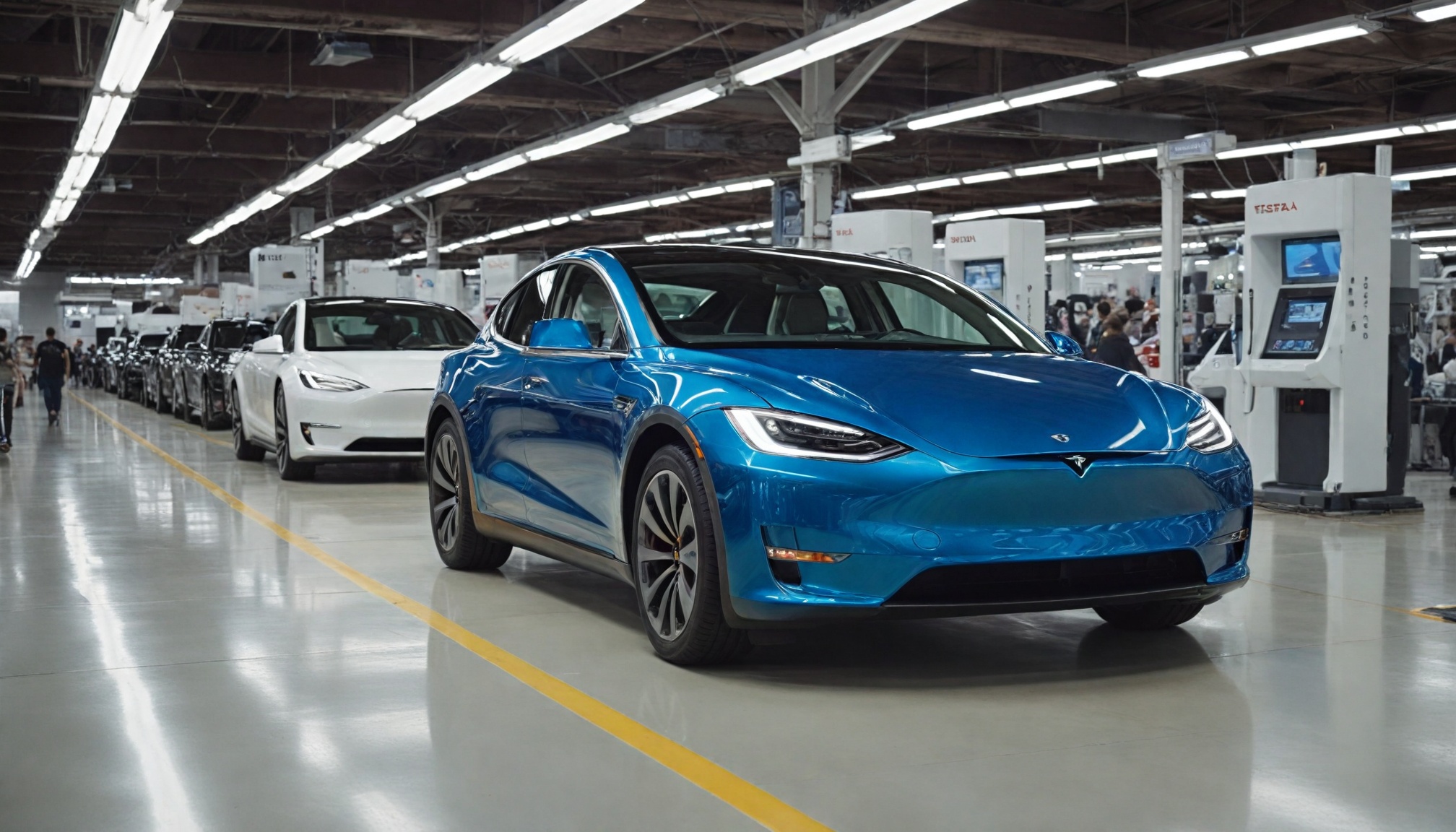
American EV startups Tesla, Rivian, and Lucid reshape global auto industry with innovation in battery tech, manufacturing, and luxury experiences, forcing legacy players to adapt.

Drivetech Partners
American electric vehicle startups have fundamentally transformed the global automotive industry, with Tesla, Rivian, and Lucid forcing established players to radically rethink their approach to electrification. This wave of innovation from U.S. companies has created ripple effects across manufacturing techniques, battery technology development, and luxury vehicle expectations worldwide.
Key Takeaways
Tesla maintains 46-50% market dominance in U.S. EV sales despite recent declines, while Rivian and Lucid steadily gain ground
American startups' vertical integration approach to battery manufacturing has become the benchmark that legacy automakers must match
The Gigafactory production model has established new efficiency standards for global automotive manufacturing
U.S. companies lead in software integration and user experience, forcing traditional luxury brands to accelerate technology development
This competition has sparked a domestic manufacturing renaissance with expanding supply chains and job creation in high-tech automotive sectors
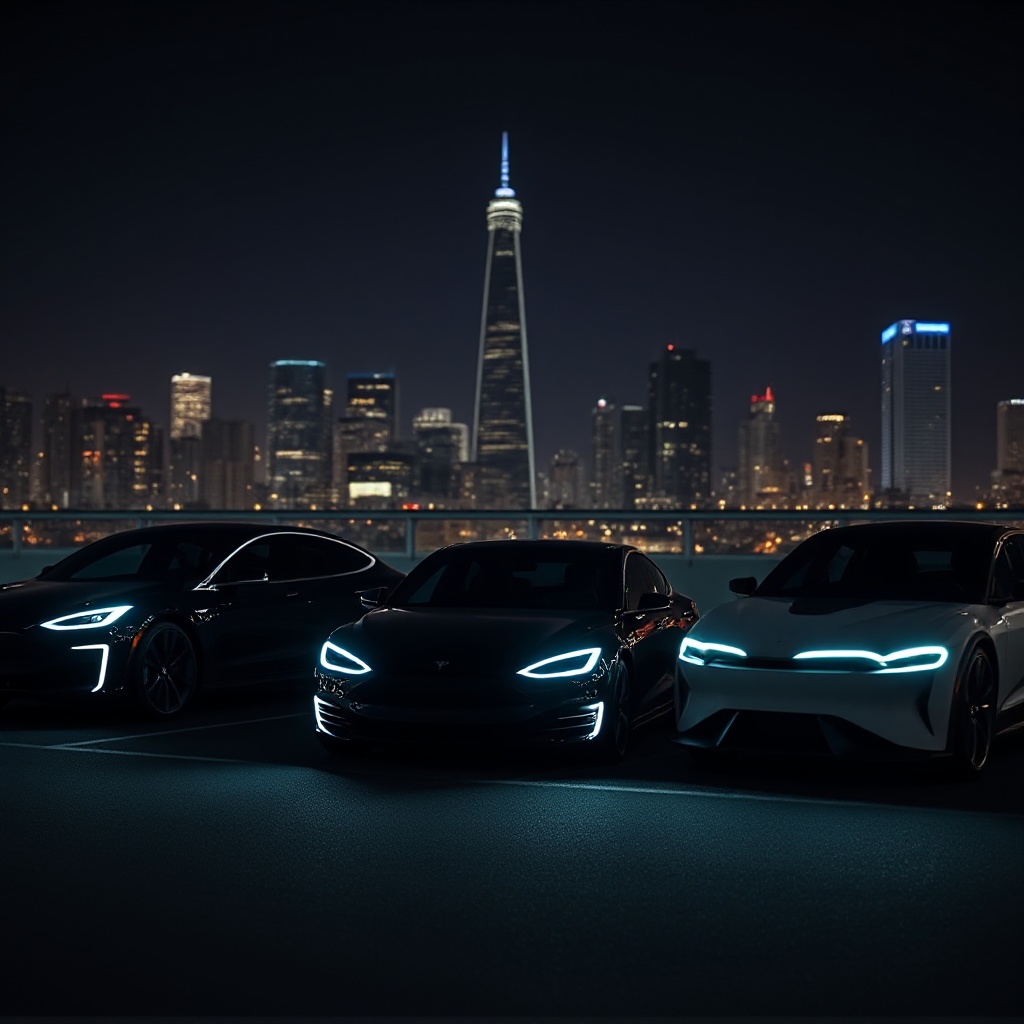
The Shifting EV Landscape: Tesla, Rivian, and Lucid Lead the Charge
American EV startups have fundamentally redefined market expectations for electric vehicles. Tesla continues to dominate with 46-50% of U.S. EV sales in Q2 2025, though this represents a 10% year-over-year decline. Meanwhile, smaller players are steadily gaining ground, with Rivian increasing its market share from 2.5% to 3.2% and Lucid growing from 0.5% to 0.7% year-over-year by August 2025.
The overall U.S. battery electric vehicle market captured 7.4% of all new car sales in Q2 2025, representing 310,839 vehicles. This marks a slight decline from 8.0% in 2024, suggesting the market is experiencing some growth stabilization after years of rapid expansion. Despite this temporary slowdown, American EV startups continue to push innovation boundaries, forcing global competitors to accelerate their electric transformation plans.
Battery Technology: The Critical Battleground
Tesla's approach to vertical battery integration has become the gold standard across the industry. By controlling everything from cell design to pack assembly, Tesla has maintained significant advantages in energy density, thermal management, and cost reduction. This strategy has pushed legacy automakers to invest heavily in similar capabilities.
Lucid Motors has established itself as the range champion, with the Lucid Air offering class-leading driving distances in the luxury segment. This achievement has forced established luxury brands to accelerate their battery development programs to remain competitive. Legacy automakers are responding with massive investments in proprietary battery platforms, such as GM's Ultium architecture and Ford's strategic partnership with Chinese battery giant CATL.
The intense competition is driving rapid advancements in three critical battery performance metrics:
Extended driving range capabilities
Faster charging speeds (both peak and sustained)
Battery longevity and degradation resistance
Manufacturing Innovation: Setting New Industry Standards
Tesla's Gigafactory model represents a revolutionary manufacturing approach that competitors worldwide are now attempting to replicate. These massive facilities integrate automated assembly systems with streamlined supply chain management to achieve unprecedented production efficiencies. The impact has extended beyond EVs, influencing manufacturing practices across multiple industries.
Newer players are scaling their production capabilities rapidly. Rivian targets between 40,000-46,000 vehicle deliveries in 2025 as it expands production capacity at its facilities. Even more ambitious is Lucid, projecting a remarkable 73% sales growth in 2025 followed by 96% growth in 2026 as its manufacturing capabilities expand.
Newcomer E-Cite Motors demonstrates the innovative approaches American startups are taking to market entry. By utilizing the U.S. Low Volume Manufacturers Act to bypass certain regulatory requirements, E-Cite recently launched the RJ9 electric pickup with an impressive 900+ mile range, showcasing how regulatory knowledge can accelerate innovation.

Luxury and Technology Integration: Redefining Premium Vehicles
Lucid and Tesla have established themselves as the definitive high-end EV luxury brands, offering vehicles ranging from $70,000 to $249,000. These companies have redefined what luxury means in the automotive context, shifting emphasis from traditional materials and craftsmanship to technology integration, performance, and user experience.
Features pioneered by Tesla that have now become expected globally include:
Regular over-the-air software updates that add new capabilities
Immersive infotainment systems centered around large touchscreens
Advanced driver assistance systems with regular capability expansions
Minimalist interior design approaches that maximize space
Rivian has carved out a unique position by targeting the "adventure vehicle" niche with its R1T pickup and R1S SUV. These vehicles appeal to outdoor enthusiasts by combining EV technology with off-road capabilities, creating an entirely new market segment that traditional manufacturers are now rushing to enter.
The American startups' focus on software and user experience has forced traditional luxury brands like Mercedes-Benz, BMW, and Audi to accelerate their technology development timelines significantly. Features that might have taken years to implement are now being rushed to market to remain competitive.
Legacy Automakers Under Pressure
Established manufacturers like GM, Ford, and Volkswagen are investing billions in electrification to catch up with American startups. GM demonstrated some success by doubling its EV sales in Q2 2025 despite overall market challenges, showing that legacy players can adapt when properly motivated.
These traditional automakers are undertaking extensive restructuring operations, including:
Converting existing production facilities to EV manufacturing
Building new dedicated EV plants
Developing U.S.-based battery production and supply chains
Creating separate EV divisions with startup-like autonomy
The slowing EV sales growth and rising costs observed in 2025 have intensified competitive pressure on legacy brands. With thinner profit margins and higher development costs than anticipated, these companies face difficult decisions about how quickly to transition away from their profitable internal combustion engine models.
The Global Response: International Brands Adapt or Fall Behind
European and Asian automakers find themselves racing to match American innovation in both luxury EVs and technology-forward vehicles. Premium brands like Mercedes-Benz and BMW have accelerated their EV roadmaps, while Chinese manufacturers including NIO and BYD are developing competitive alternatives to American EV advances.
International brands are leveraging their own proprietary innovations to differentiate from American startups. Examples include NIO's battery-swap technology, which addresses charging speed limitations, and BYD's vertically integrated battery production, which provides cost advantages. These companies are attempting to leapfrog rather than merely catch up to American innovations.
The competitive pressure has significantly accelerated global EV development timelines. Vehicle programs that previously required 5-7 years from concept to production are now being completed in 3-4 years as manufacturers rush to remain relevant in the rapidly evolving market.
Future Market Dynamics: Profitability Challenges and Expansion Opportunities
All EV manufacturers face ongoing struggles for profitability as the market matures. Even Tesla, the most established player, continues to face margin pressures as competition increases. For newer entrants like Rivian and Lucid, the path to sustainable profitability remains challenging despite their technological achievements.
Lucid's ambitious growth projections – 73% sales growth in 2025 and 96% in 2026 – stand in contrast to industry-wide concerns about slowing EV adoption rates. This highlights the uneven nature of the market, where premium segments may continue growing rapidly while mass-market adoption faces obstacles around charging infrastructure and vehicle affordability.
Strategic partnerships have become essential for achieving sustainable growth. Rivian's deal with Amazon for delivery vehicles provides stable revenue while the company builds its consumer business. Similarly, other startups are exploring collaboration opportunities with established players to access capital, manufacturing expertise, and distribution networks.
The Broader Economic Impact: Supply Chains and Manufacturing Renaissance
American EV innovation is driving a profound reshaping of global automotive supply chains. The shift toward domestic battery production and component manufacturing represents a significant economic opportunity for the United States after decades of automotive manufacturing decline.
Job creation is occurring across multiple sectors:
Advanced manufacturing facilities requiring skilled technicians
Software development for vehicle systems and user interfaces
Battery technology research and production
Charging infrastructure deployment and maintenance
The EV revolution is contributing to a broader American manufacturing renaissance in high-tech industries. As production techniques pioneered by companies like Tesla spread to other sectors, the impact extends beyond automotive to areas like energy storage, aerospace, and consumer electronics manufacturing.
The transformation of the automotive industry demonstrates how American innovation can still lead global industries when combining technology expertise, manufacturing knowledge, and consumer-focused design. The lessons learned from this sector may provide a blueprint for revitalizing other manufacturing industries in the coming decade.
Sources
Nasdaq: Better Electric Vehicle (EV) Stock: Lucid Group vs. Rivian
Markets.com: Best EV Stocks for 2025: NIO, TSLA, Rivian, Lucid, BYD
TradingView: EV Stocks Are Back on Track: Who's Got the Juice in 2025?
